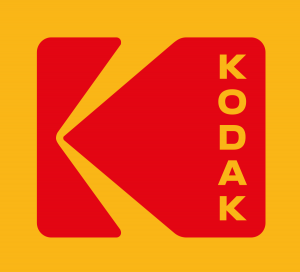What’s in a name? That which we call a rose by any other name would smell as sweet. William Shakespeare believes names are of no importance. That might be true for people in love but as naming specialist Andra Guțui points out in this article, the name of your startup is paramount. Don’t forget that Google’s first name was Backrub. Read on to learn how to come up with the right name for your startup.
When you are planning to launch a new startup there are a lot of things to take into consideration: business plan, product development, marketing plan, creating the branding part and the list continues.
In many cases, the name of your startup remains the last on this list or the name is chosen by using some personal subjective criteria.
Naming your next startup should be an important task also.
It is not an easy one and that’s why you will discover from this article 7 important recommendations for finding the most suitable name for your future business success:
7 recommendations for naming your future startup
1. Don’t leave the name the last on your “to-do list”
When you have so many things to finish before the big launch, the name seems to be a small part with no important significance for your future startup.
You must always remember that many things you are doing now for your launching, it’s very probable to change them all in two or three years. The only thing that it’s more difficult to change over the years is the name.
My advice is to start with the name, before getting all the other things done. Even if it sounds like a simple task, sometimes it takes longer to find the most suitable naming option.
2. Establish from the start some coherent and logical naming criteria
When we are especially discussing the first startup, the most used naming methods are the following:
- Combining the letters from the founders’ names in order to invent a new word and finally a startup name;
- Choosing a name related to a personal experience from the founders’ lives like the place they are born, their kid’s name, their pets’ names or even a completely unrelated concept to the startup. For example, if the founder is a Star Wars movie fan, naming its future cosmetics online story Jedi Cosmetics may be a wonderful idea for him.
But you must remember that a startup is not only your personal thing. It’s a business which will serve a specific target audience which has various expectations.
The most important naming expectations and criteria to be taken into consideration are the following:
Suggestive for the target audience
Let’s say it again: For the target audience, not for you!
Your potential customers must understand and remember what your startup does. They don’t really care about your dog’s name if they are not able to quickly understand what’s behind your startup’s name.
With the potential of creating imaginary
This rule is applied for suggestive and metaphorical names. In the case of a descriptive startup name, a customer will not have to use imagination to discover more about the products.
Meaningful
Your startup brand name must be correlated with its marketing positioning.
3. Descriptive? Suggestive? Metaphorical? Or invented?
You can choose from many types of startup names, but four of them are the most known, used and easy to understand options. Let’s see more about each of them:
Descriptive names
They directly identify the origin and meaning of the product or service without making use of the client’s imagination.
Examples:
![]()


Descriptive names are functional and can help you with your startup positioning on the market.
As for disadvantages, I can tell you that they tend to be non-creative and unremarkable. Also, they are very difficult to register as trademarks due to their nature of relying on common words which are already used in different trademarked brand names.
Suggestive names
They are indicating an important attribute or differentiation point of your startup, but a customer can figure it up very fast what your start-up does.
Examples:




Suggestive names are the most used naming option over the world.
They can be original and quick to understand and to memorize. Also, they are easier to register them as trademarks.
Metaphorical names
They are usually words with common meanings, but they are applied to businesses completely unrelated to this known meaning. They are the most creative and original naming option. Very easy to register them as trademarks.
Examples:



Invented names
Invented names are made-up words which have no meaning in any language other than serving as a new startup name and trademark.
Of course, it’s a unique naming option and you can register them as trademarks right away.
Still, you must take into consideration that it is very difficult to promote them and to make your target audience to understand what your startup really does.
Examples:



4. Analyze what type of names your competitors have chosen
In some unfortunate cases, people are analyzing the competitor’s names with the single purpose of copying their name or to find a similar naming option.
This is very wrong.
The main objectives in analyzing the existent start-up names on your market are the following:
- Split all your competitors’ names into the four naming types described above;
- See in which category is the highest number of competitors;
- Choose the second most appropriate naming type, not the one chosen by all your competitors. For example: If most of your competitors are choosing descriptive brand names, then go for a suggestive name.
5. Start the naming process with a proper brief
Especially when you are preparing to launch a new startup and you have more than two partners, it’s mandatory to start the naming process with a suitable and complete naming brief.
In this way, you will find your common points, the ideas which need to be avoided and you will avoid arguing with no productive purpose.
You must ask yourselves questions regarding:
- Your startup’s general vision;
- Its future commercial objectives;
- Target audience;
- The type of preferred naming options;
- The linguistic preferences regarding the startup name;
- Competition.
6. Learn a few pronunciation rules
A very important naming criterion is to find a name which is easy to pronounce in the countries where your target audience lives.
There are a few general pronunciation rules you should take into consideration:
- Some letters may be easily confused with others inside of a naming construction. Examples: “M” can be confused with “N”, “R” with “L”, “D” with “T”, “B” with “P” and “S” with “Z”;
- Do not cluster many consecutive consonants into the same word;
- Some letters are very difficult to pronounce if they are followed by certain other letters. Examples: “B” followed by “R”, “L” followed by “T”;
- If you choose a two-word name, check if you can combine them into one single word. Example: Facebook versus Face Book.
7. Trademark screening first!
Do not start the branding process and do not launch your startup before ensuring that your name is available for registration as a trademark!
First, start the procedure of registering your startup name and only after that you can officially launch the new business.
If you do not follow this rule, you may have a lot of problems like:
- Someone else has already registered the same name before and you will be forced to give up your name after you have invested a lot of money in branding and promotion;
- If the name is not registered but it does not belong to you, someone else may register it as a trademark and you will again be forced to rename your entire business.
Naming your future startup is not a simple task.
You can do it yourself if you follow these simple rules or you could work with a naming agency which could help you.
No matter which option you choose, always remember that the name comes first and most probably it will remain with you until the end! All the other things are simpler to adapt and to change over time.
Join the Conversation
We’d love to hear what you have to say.
Get in touch with us on Facebook Group and Twitter.


















